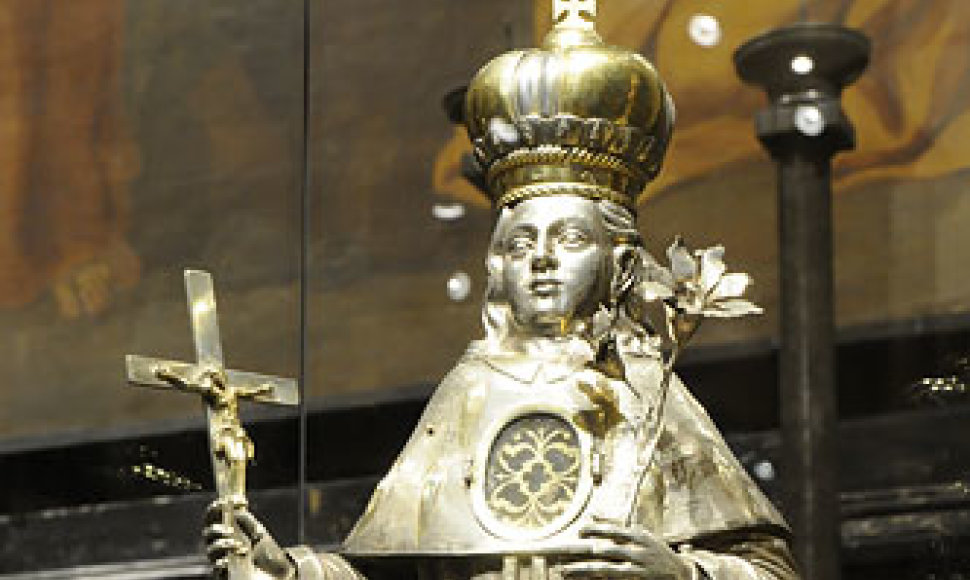In 1984, Pope John Paul II addressed Lithuanian pilgrims commemorating the 500th anniversary of the prince's death. He said the Church “proclaimed Casimir a saint and placed him before us not only to be venerated but also that we might imitate his heroic virtues and follow his example of holiness.”
“His witness of great faith and fervent piety continues to have special meaning for us today,” the Pope said, noting especially the “challenging call” he offers to young people.
“His life of purity and prayer beckons you to practice your faith with courage and zeal, to reject the deceptive attractions of modern permissive society, and to live your convictions with fearless confidence and joy.”
He wore plain clothes with a hair shirt beneath them, slept frequently on the ground, and would spend much of the night in prayer.
Casimir Jagiellon was born in 1458, the third of thirteen children born to Poland's King and Lithuania's Grand Duke Casimir IV and his wife Elizabeth of Austria. He and several of his brothers studied with the priest and historian John Dlugosz, whose deep piety and political expertise influenced Casimir in his upbringing.
The young prince had a distaste for the luxury of courtly life, and instead chose the way of asceticism and devotion. He wore plain clothes with a hair shirt beneath them, slept frequently on the ground, and would spend much of the night in prayer and meditation on the suffering and death of Christ.
Casimir showed his love for God through these exercises of devotion, and also through his material charity to the poor. He was known as a deeply compassionate young man who felt others' pains acutely.
The young prince was only 13 years old when his father was asked by the Hungarians to offer his son as their new king. Casimir was eager to aid the Hungarians in their defense against the Turks, and went to be crowned. This plan was unsuccessful, however, and he was forced to return to Poland.
After his return Casimir resumed his studies with Dlugosz, while developing a canny grasp of politics by observing his father's rule. In 1479 the king left Poland to attend to state business in Lithuania, leaving Prince Casimir in charge of the realm between 1481 and 1483.
Advisers to the prince joined his father in trying to convince Casimir to marry. But he preferred to remain single, focusing his life on the service of God and the good of his people.
After experiencing symptoms of tuberculosis, Casimir foresaw his death and prepared for it by deepening his devotion to God. He died en route to Lithuania on 4 March, 1484, and was buried with a copy of a Marian hymn he frequently recited. Pope Adrian VI canonized him in 1522.
Five centuries after his death, Pope John Paul II recalled how St. Casimir “embraced a life of celibacy, submitted himself humbly to God’s will in all things, devoted himself with tender love to the Blessed Virgin Mary and developed a fervent practice of adoring Christ present in the Blessed Sacrament.”
“To all,” the Pope said, “he was a shining example of poverty and of sacrificial love for the poor and needy.”
 |
| Irmanto Gelūno/15min.lt nuotr./Kaziuko mugė - traditional Vilnius fair in honour of St Casimir. |












